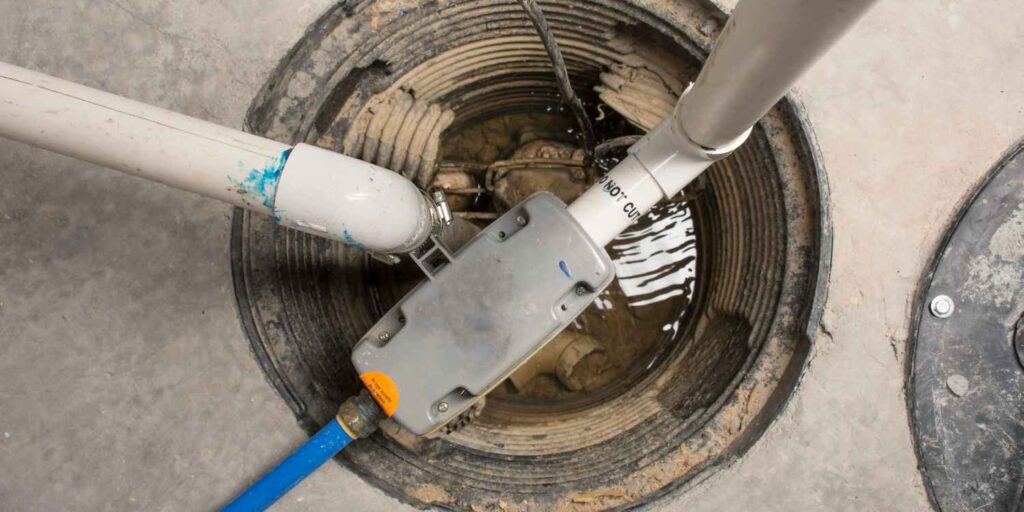Introduction:
Basement flooding is a common and costly problem for homeowners, often resulting in property damage, mold growth, and health hazards. To protect your home from the devastating effects of flooding, investing in a sump pump can be your first line of defense. In this comprehensive guide, we’ll explore the importance of sump pumps in preventing basement flooding and provide essential information to help you make informed decisions about selecting and installing the right sump pump for your home.
The Importance of Sump Pumps in Basement Flooding:
- Prevent Water Damage:
Sump pumps are designed to remove excess water from the basement or crawl space, preventing it from accumulating and causing water damage. By automatically pumping out water as it enters the sump pit, sump pumps can help keep your basement dry and free from flooding, even during heavy rainstorms or snowmelt.
- Protect Against Mold and Mildew:
Basement flooding can create the perfect breeding ground for mold and mildew, which thrive in damp, humid environments. Mold growth not only damages building materials and belongings but also poses serious health risks to occupants. By keeping your basement dry and moisture-free, sump pumps can help prevent mold and mildew growth, ensuring a safe and healthy living environment for you and your family.
- Increase Property Value:
Homes with sump pump systems installed are often more attractive to potential buyers, as they provide added protection against basement flooding and water damage. Investing in a sump pump can increase the resale value of your home and give you peace of mind knowing that your property is equipped with a reliable flood prevention system.
Choosing the Right Sump Pump:
- Consider Your Basement Size:
When selecting a sump pump, consider the size and layout of your basement or crawl space. Larger basements may require more powerful sump pumps with higher pumping capacities to effectively remove water and prevent flooding. Consult with a professional to determine the appropriate size and type of sump pump for your specific needs.
- Evaluate Pumping Capacity:
The pumping capacity of a sump pump, measured in gallons per hour (GPH) or gallons per minute (GPM), indicates how quickly the pump can remove water from the sump pit. Choose a sump pump with sufficient pumping capacity to handle the expected water volume during heavy rainstorms or periods of high groundwater levels.
- Choose Between Pedestal and Submersible Pumps:
Sump pumps are available in two main types: pedestal pumps and submersible pumps. Pedestal pumps feature a motor mounted above the sump pit, while submersible pumps are fully submerged in the pit. Submersible pumps are generally more expensive but quieter and more discreet than pedestal pumps. Consider your budget and space constraints when choosing between the two types of sump pumps.
- Invest in Backup Power:
To ensure continuous operation of your sump pump during power outages or electrical failures, consider investing in a backup power source such as a battery backup system or a generator. Backup power systems can provide peace of mind knowing that your sump pump will continue to function even in emergency situations.
Installation and Maintenance Tips:
- Professional Installation:
For optimal performance and reliability, consider hiring a professional plumber or contractor to install your sump pump system. A qualified installer can ensure that the pump is correctly sized, positioned, and connected to the drainage system, minimizing the risk of installation errors and future problems.
- Regular Maintenance:
To keep your sump pump in top working condition, perform regular maintenance tasks such as cleaning the sump pit, testing the pump operation, and inspecting for signs of wear or damage. Replace worn or malfunctioning components as needed to prevent breakdowns and ensure continuous flood protection.
Conclusion:
Investing in a sump pump is an essential step in protecting your home from basement flooding and water damage. By understanding the importance of sump pumps, choosing the right pump for your needs, and following proper installation and maintenance practices, you can safeguard your property and enjoy peace of mind knowing that your home is equipped with an effective flood prevention system.
Remember, If you’re having any questions on Basement Flooding, do not hesitate to contact us through our website CJ Drain & Plumbing. You can send us any question you have and/or ask for a quote!
At CJ Drain & Plumbing, our team of professionals is always ready to help you.

